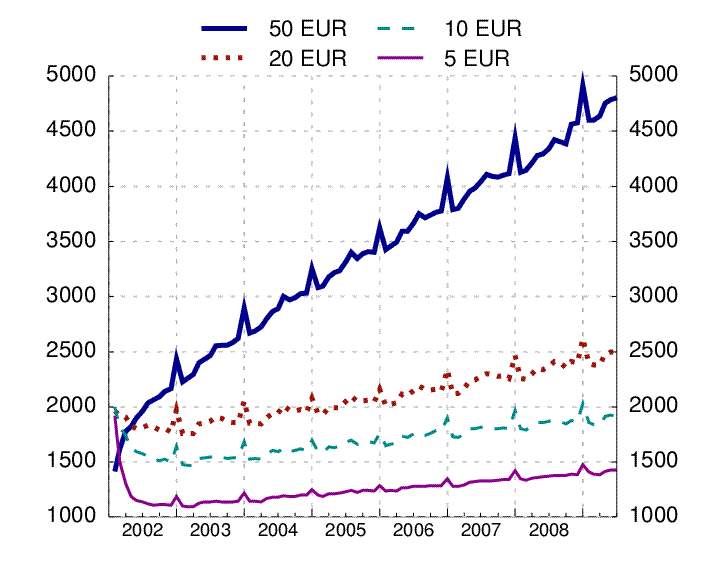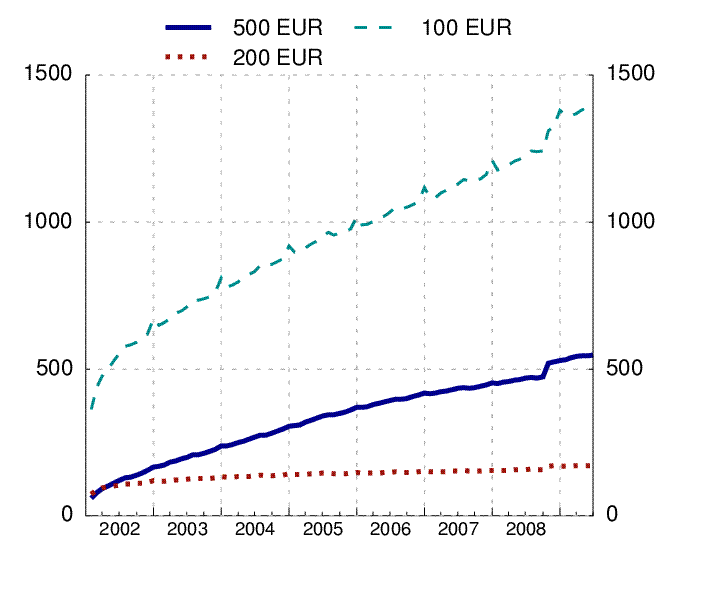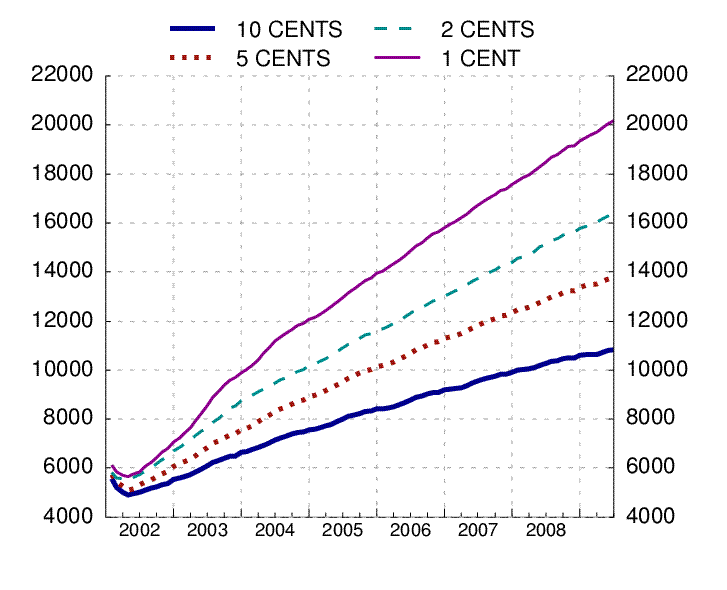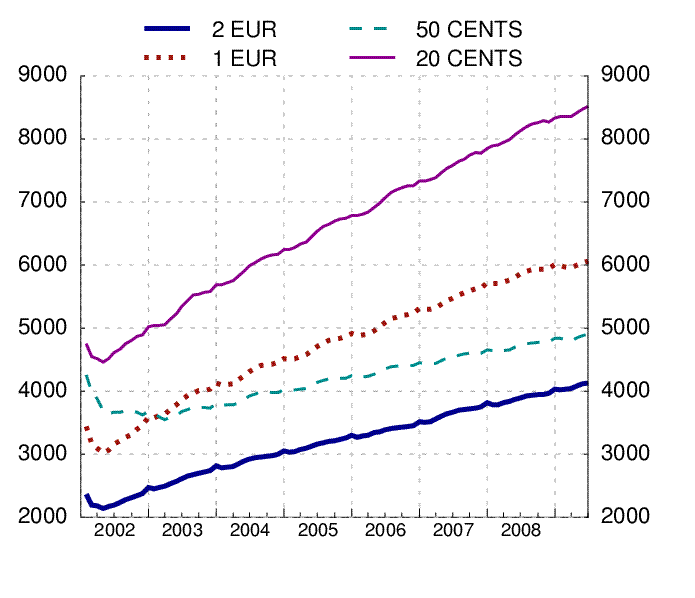ESTA Annual Business Conference
13 thru 15 June 2010, Porto, Portugal
Registration still open!

We are very pleased to present this years’ conference “The Cash Cycle
of the New Decade” as a high level event to all our members. The
Conference venue in itself is very inspiring and the Business
Conference program is designed to offer all participants substantial
value.
The working sessions will see three main themes debated: The cash cycle
of the new decade, EU upcoming legislation impacting on the CIT industry
and Security issues.
The Minister of Internal Affairs of Portugal, Dr. R. Pereira, will
honour the conference with a welcome note to the delegates on Monday
14th June. Thereafter, top level speakers from the ECB, National Central
Banks, EU Commission, National authorities together with ESTA Members
will deliver speaches on the above selected subjects. To get the full
list of distinguished speakers, please read the confirmed
conference program.
Conference registration is still open and we look forward to your decision to reinforce our event by attending!

Hotel
registration is also still possible on a best efforts basis (no
guarantee for availability at discounted rates which was open until 15
April). All conference and registration material is available from the
updated
ESTA conference page.
Porto Palacio Congress Hotel & Spa
Do you consider bringing clients to Porto? ESTA members have the unique
opportunity to invite their clients to the conference (subject to ESTA’s
approval).
The ESTA Board of Directors and the conference speakers are pleased to welcome you to the beautiful city of Porto!
Conference Coordinator: ESTA Secretariat
Tel. +32-2-230.23.63 - Fax +32-2-230.65.11 - www.esta-cash.eu - contact@esta-cash.eu
EU AFFAIRS
Cross Border CIT: state of play
The draft CIT cross border regulation is in its final stage and will be
formally communicated in June 2010. It will then have to be approved by
the Council and the European Parliament with the possible introduction
of compromised amendments
The initial Commission drafted document has been substantially amended
and the final document is likely to satisfy our industry’s legitimate
requirements to provide appropriate security for the CIT crews and
guarantee a level playing field for the CIT companies.
Legal tender of the Euro
The EU Commission had adopted a recommendation on the scope and effects
of legal tender of euro banknotes and coins. We welcome this initiative
and congratulate the Commission for ensuring that consumers are granted
the choice of the payment instrument.
The recommendation lays down ten guiding principles:
- The concept of legal tender should rely on three main elements:
a mandatory acceptance of banknotes and coins, for their full face
value, with a power to discharge debts.
- The acceptance of payments in cash should be the rule: a
refusal is only possible if grounded on reasons related to the 'good
faith' principle (for example, if the retailer should not have enough
change).
- Similarly, the acceptance of high denomination banknotes should also be the rule.
- No surcharges should be imposed on payments in cash.
- Member States should refrain from adopting new rounding rules to the nearest five cent.
- Member States should take all appropriate measures to prevent euro collector coins from being used as means of payments.
- Stained banknotes should be brought back to the National Central Banks as they might be the product of a theft.
- Total destruction of banknotes and coins by individuals in small quantities should not be prohibited.
- Mutilation of banknotes and coins for artistic purposes should be tolerated.
- The competence to destroy fit euro coins should not belong to national authorities in isolation anymore.
More information is available at
http://ec.europa.eu/economy_finance/articles/euro/2010-03-22-legal-tender-euro_en.htm
Cash in circulation – update from ECB
The European Central Bank’s latest data shows that cash continues to grow:
The number of euro banknotes in circulation at the end of Q4 stood at a
total amount of 13643 millions, with a value of €806 billion, an
increase of 7,1% and 4,8%. Viewed between Q2 and Q3 the number of euro
banknotes in circulation had known a slight decrease of 0,09% whereas
the value stayed more or less unchanged at 0,3% with a value of €767
billion.
In Q3 the total number of Euro coins in circulation grew to 86252
million, while their value rose to €21023 million, an increase of 1,6%
and 1,7% respectively since Q2 2009. The total increase of numbers of
Euro coins in circulation between Q3 and the last quarter of 2009 grew
with 1,3% and their value rose to €21316 million, an equal increase of
1,3%.
The trend shows a general increase in numbers during 2009 with the
largest growth between Q3 and Q4 with regard to Euro banknotes.
These are the graphs:
(4 graphs)
 |
Chart 1:
Low denomination banknotes in circulation
(in quantities, millions)
|
 |
Chart 2:
High denomination banknotes in circulation
(in quantities, millions)
|
 |
Chart 3:
Low denomination coins in circulation
(in quantities, millions)
|
 |
Chart 4:
High denomination coins in circulation
(in quantities, millions)
|
Potentially unfair commercial practices in the retail financial sector
The European Commission has issued a consultation document on the study
on tying and other potentially unfair commercial practices in the
retail financial service sector.
The data presented in the study concludes that cross-selling practices,
of which tying represents about one third, and conditional sales
practices are widespread in the EU27!
Cards fraud
Incidents of credit card fraud and
identity theft in the UK are increasing at an alarming rate, according
to a survey conducted by Infosecurity Europe. Forty-four per cent of the
1,000 Londoners questioned in the survey said they had been the victim
of bankor credit card frauds. while 42 per cent reported falling prey to
identity theft. Claire Sellick, event director for Infosecurity Europe,
said in a statement: “The incidence of bank card fraud and ID theft is
very high, and perhaps not surprising, given how ingenious criminals
have become.”
Infosecurity revealed that on average,
victims lost £1,488 to the criminals, with 37 per cent of victims
claiming that they had not been reimbursed by their bank. Around 60 per
cent of the people blamed retailers for making them more vulnerable to
credit card fraud and identity theft. Only 12 per cent placed
responsibility for their losses with thebanks.
|
A team from the
University of Cambridge’s Computer Laboratory said criminals were able
to use stolen cards to make purchases even though they did not have the
card’s pin, by inserting a “wedge” between the cards and the payment
terminal!
The Cambridge research also warned that the apparent use of
pins in fraudulent transactions could lead victims having their claims
for refunds turned down!
|
Mobile payments
Mobile payments uncertain future Consumers worry that m-payments will
give network operators and IT firms new opportunities to study their
commercial behaviour and to create targeted ads. A potentially huge
glitch in m-payments is the fact that stolen mobile phones could be used
to make payments without the bank or the retailer noticing!
Euractiv, 31 january 2010
SEPA and direct debit rules
BEUC, the European consumers association, has expressed its concerns
regarding SEPA Direct Debit, underlining that SEPA’s creditor mandate
flow (CMF) is massively open to fraud!
For more information please visit
www.beuc.org
Cash future in Europe
A new study "The Future of Cash and Payments”, by Retail Banking
Research (RBR) has found that cash remains the predominant retail
payment method in Europe.
The report analyses the historic and current use of different retail
payment methods (both cash and cashless) in 28 European countries, and
for comparison purposes in Australia and the USA. The study looks at the
economics and especially the business case for cash substitution, and
evaluates the major drivers that currently affect and will change the
cost and usage of different payment methods. It forecasts how the use of
cash and cashless payments will change up to 2014.
RBR, 4 February 2010
For more information please visit
www.rbrlondon.com/futureofcash
ESTA contact
• For general inquires regarding administration, documents, conference:
contact@esta-cash.eu
• For specific questions to the Secretary General:
francis.ravez@esta-cash.eu



 Hotel
registration is also still possible on a best efforts basis (no
guarantee for availability at discounted rates which was open until 15
April). All conference and registration material is available from the
updated
Hotel
registration is also still possible on a best efforts basis (no
guarantee for availability at discounted rates which was open until 15
April). All conference and registration material is available from the
updated 


